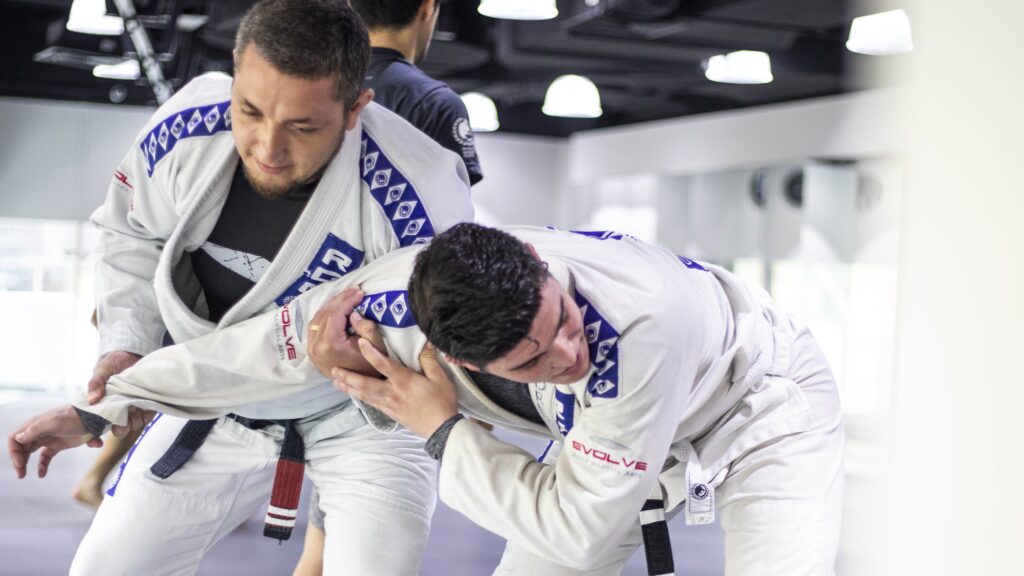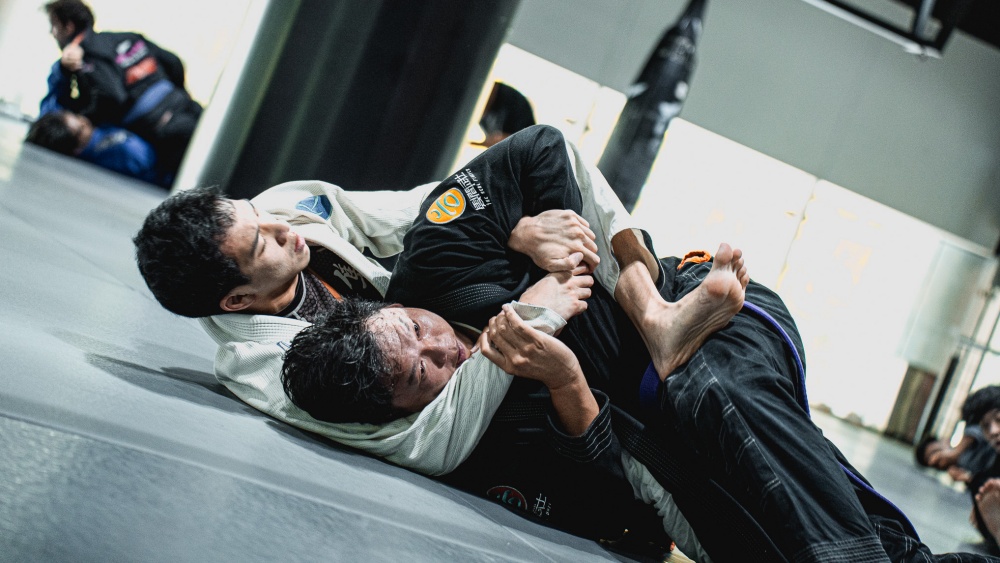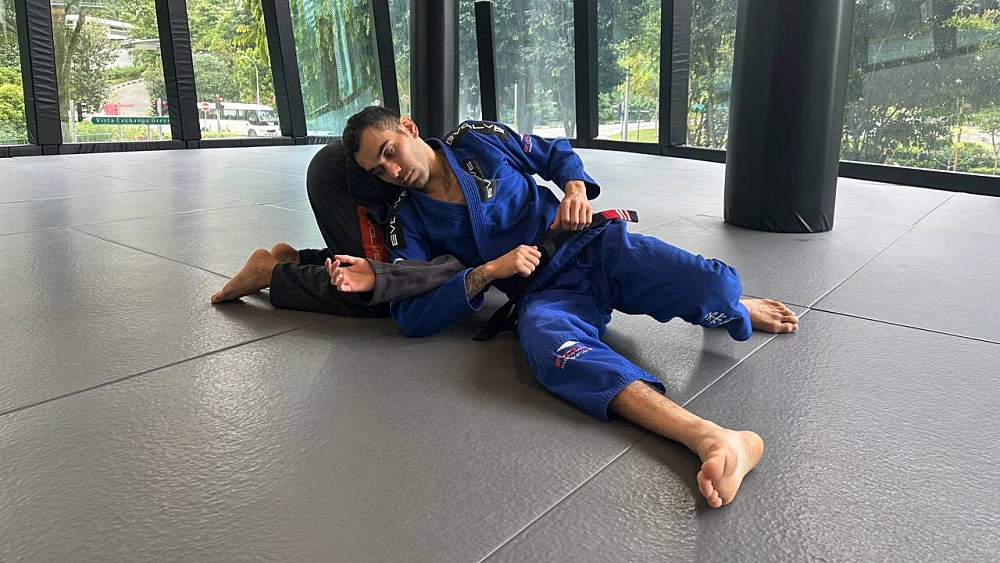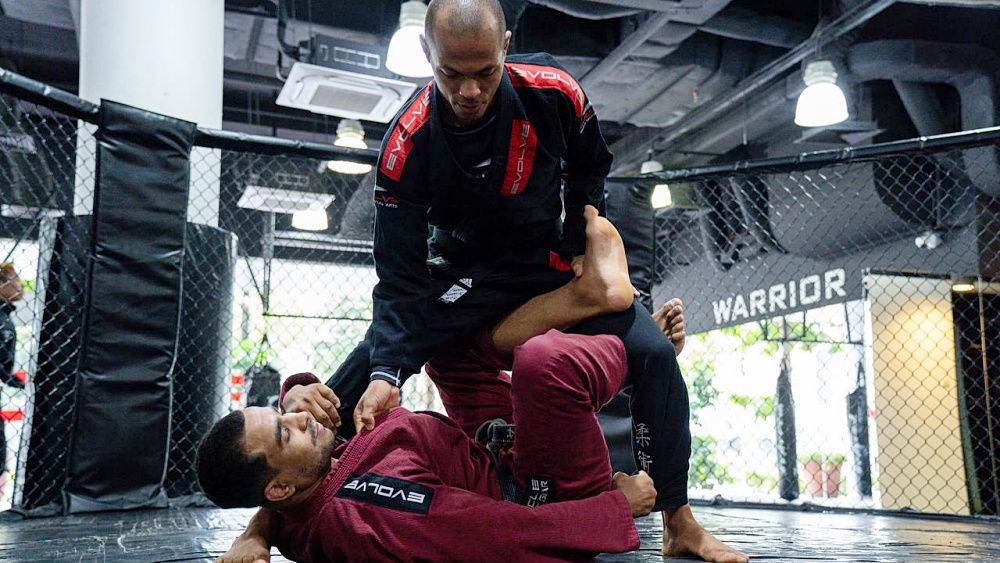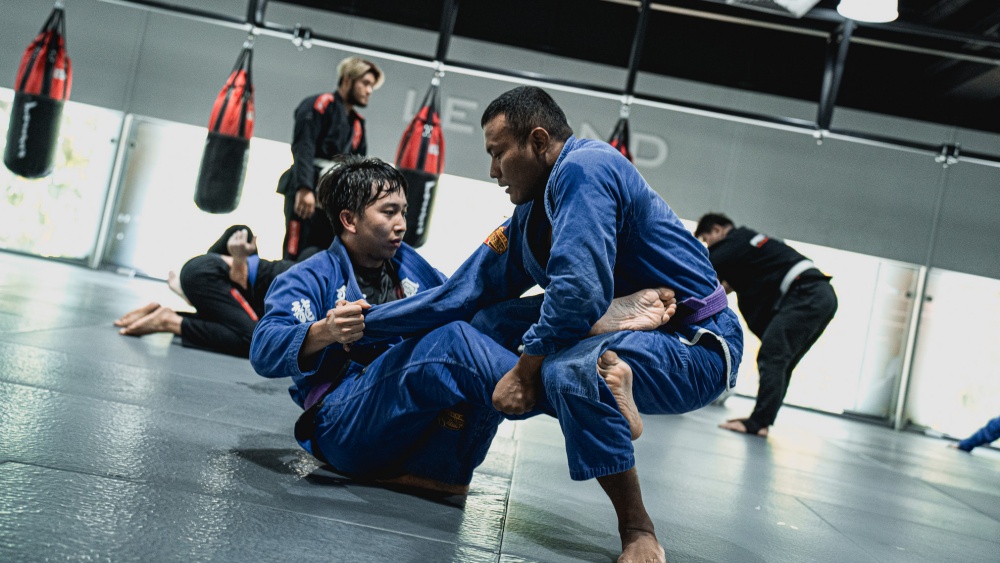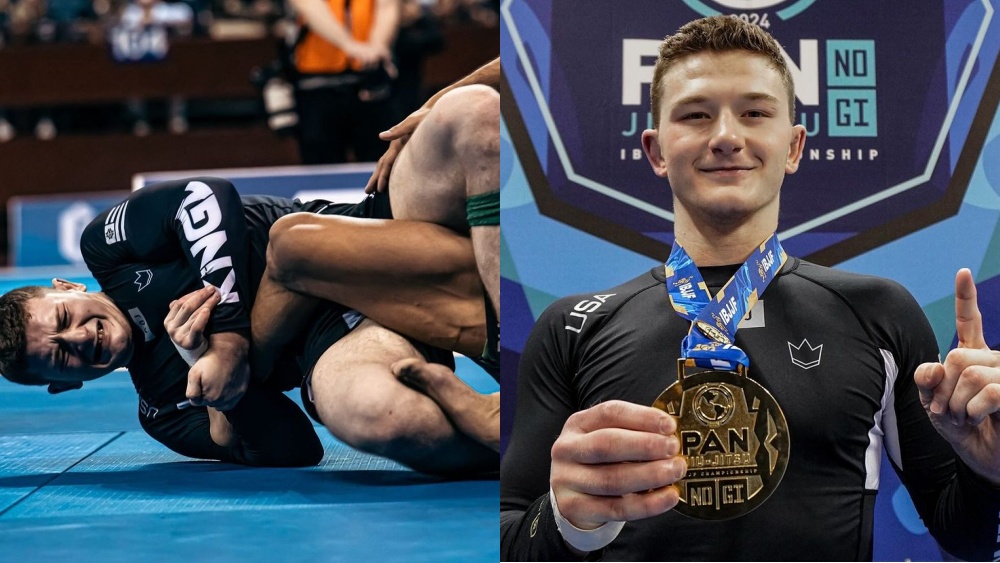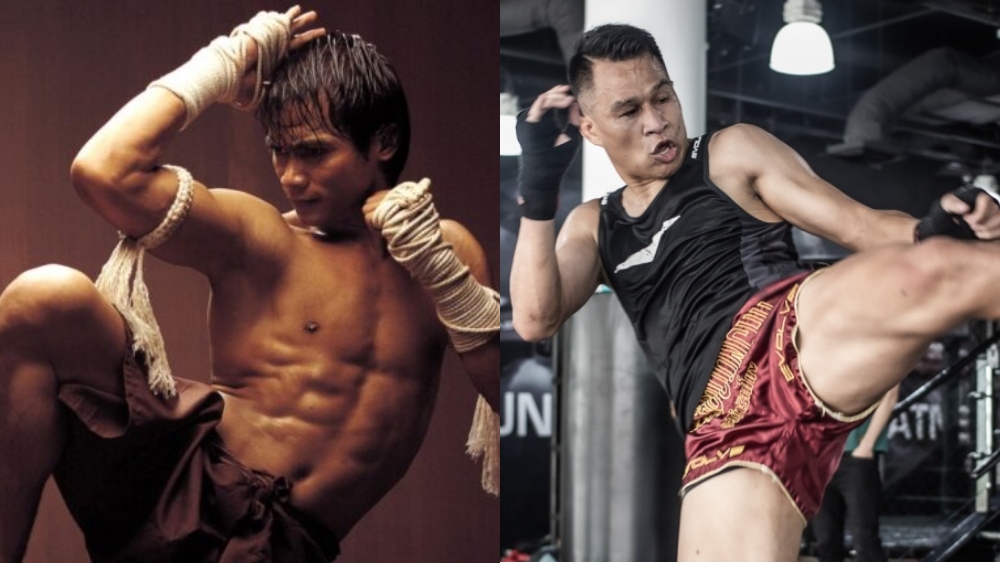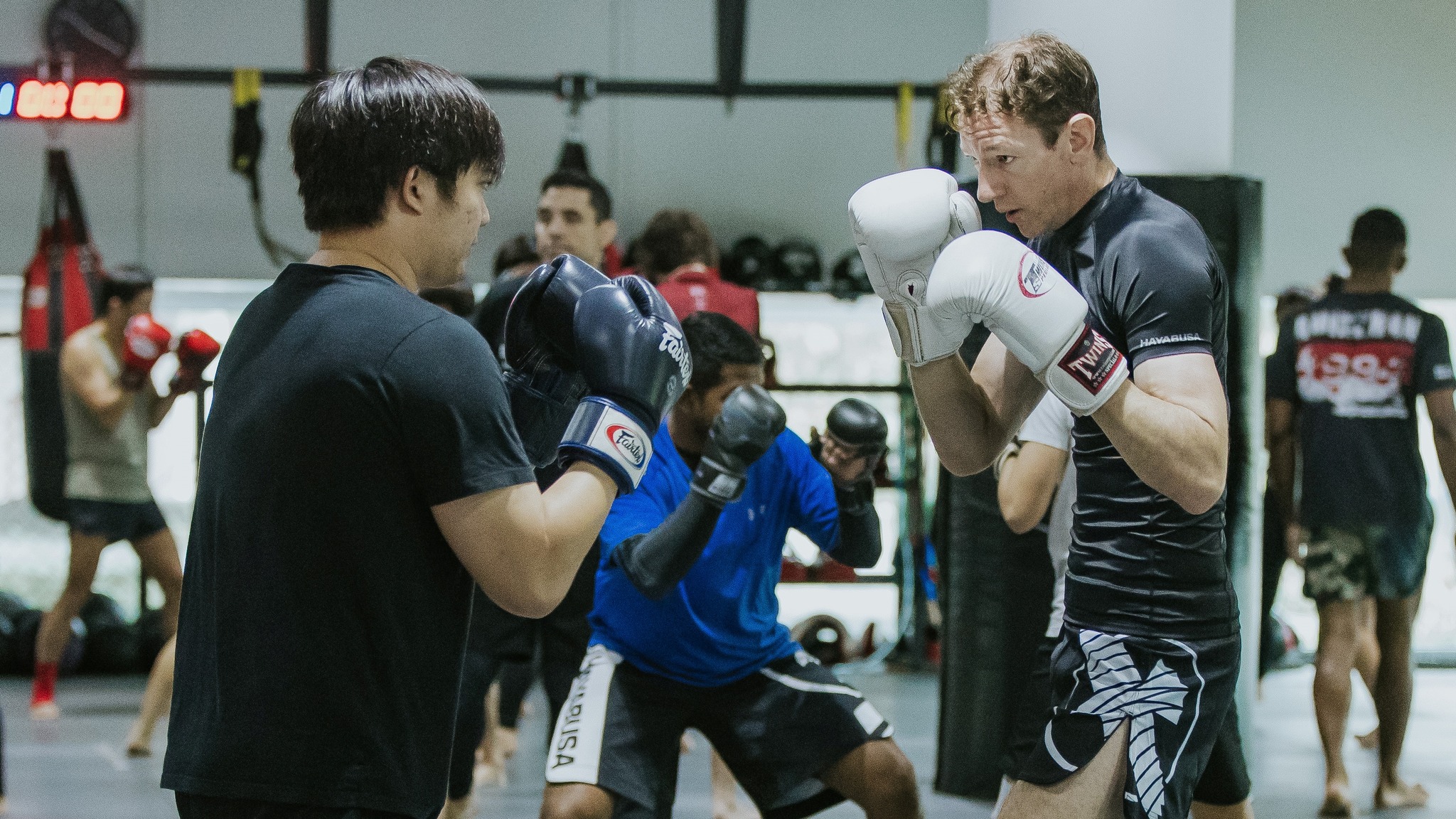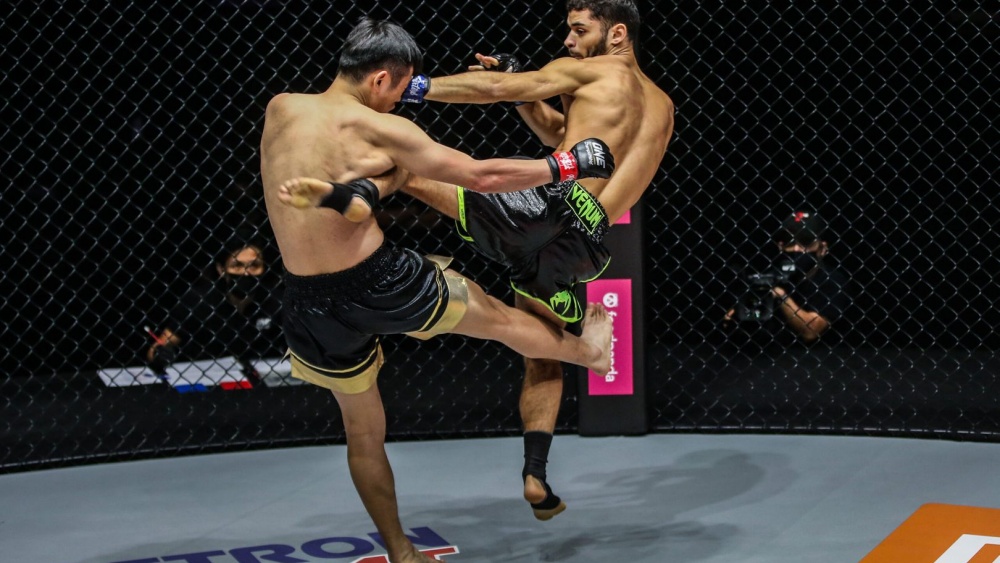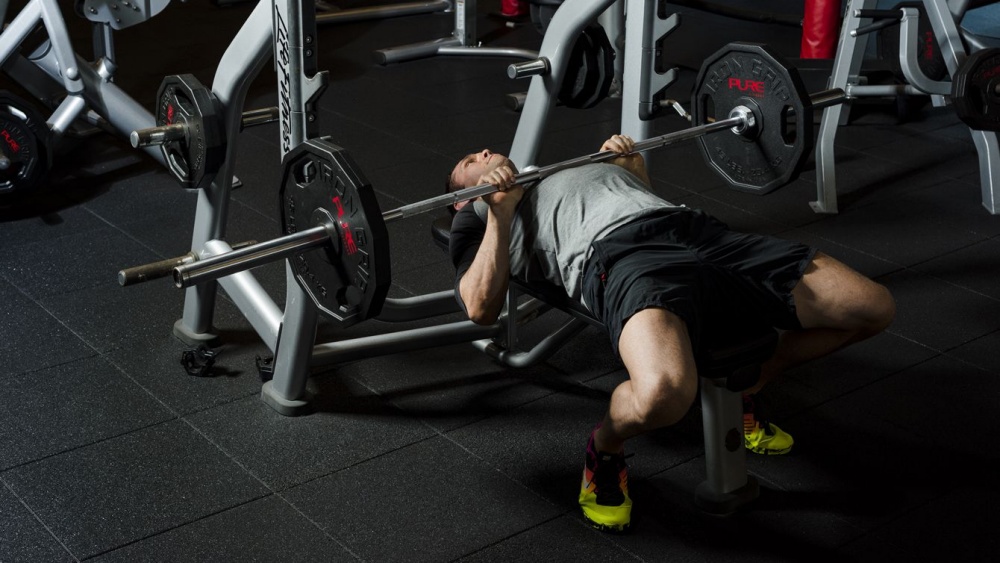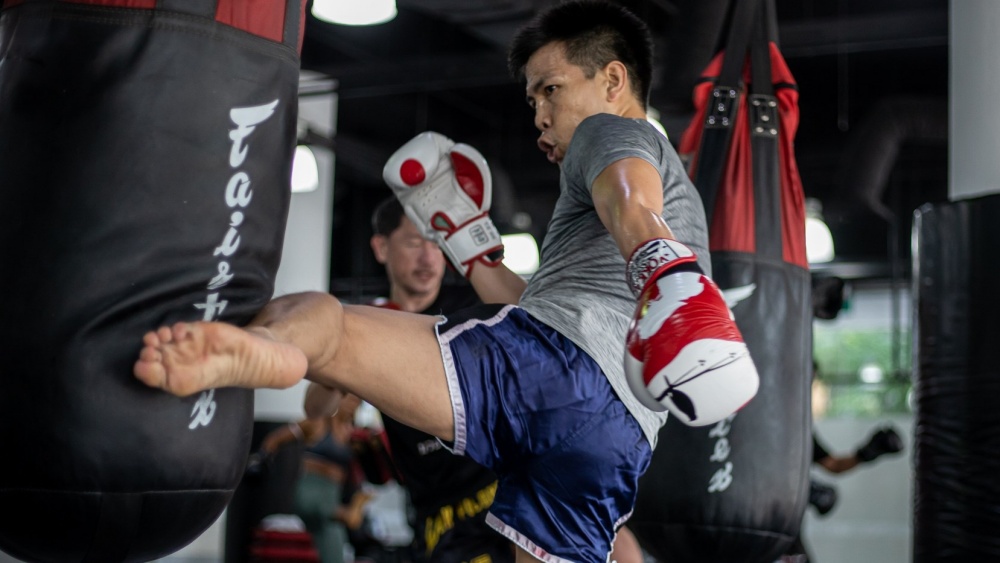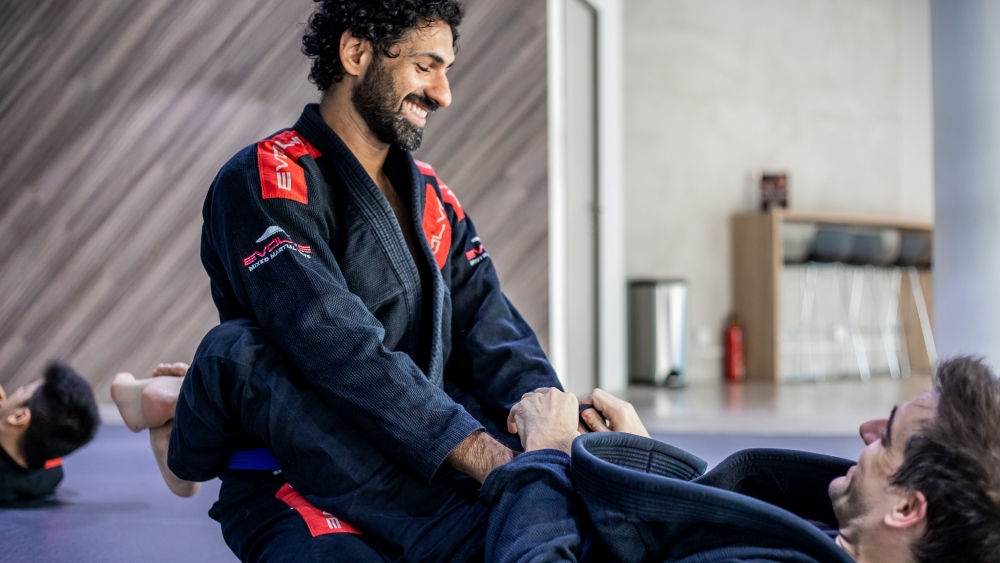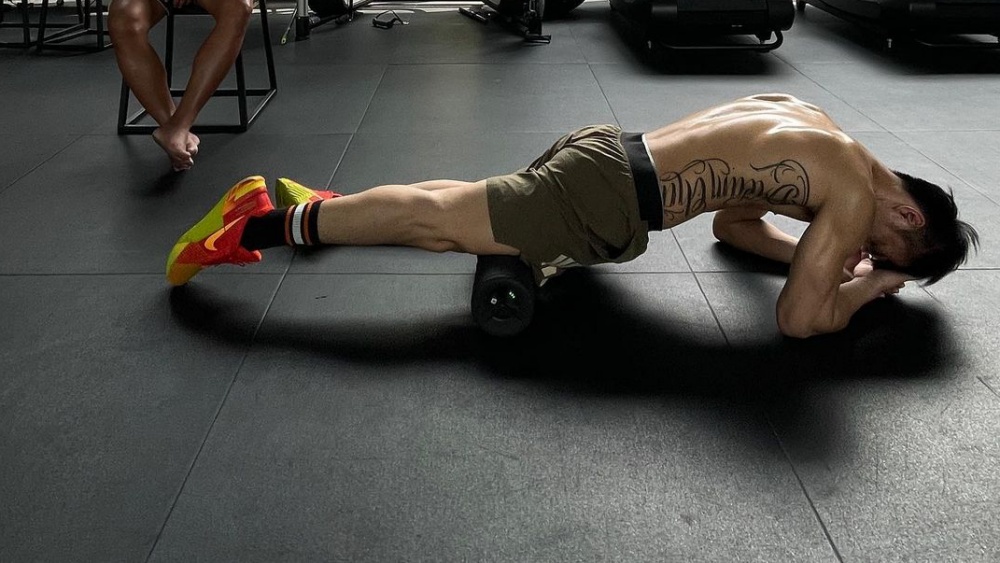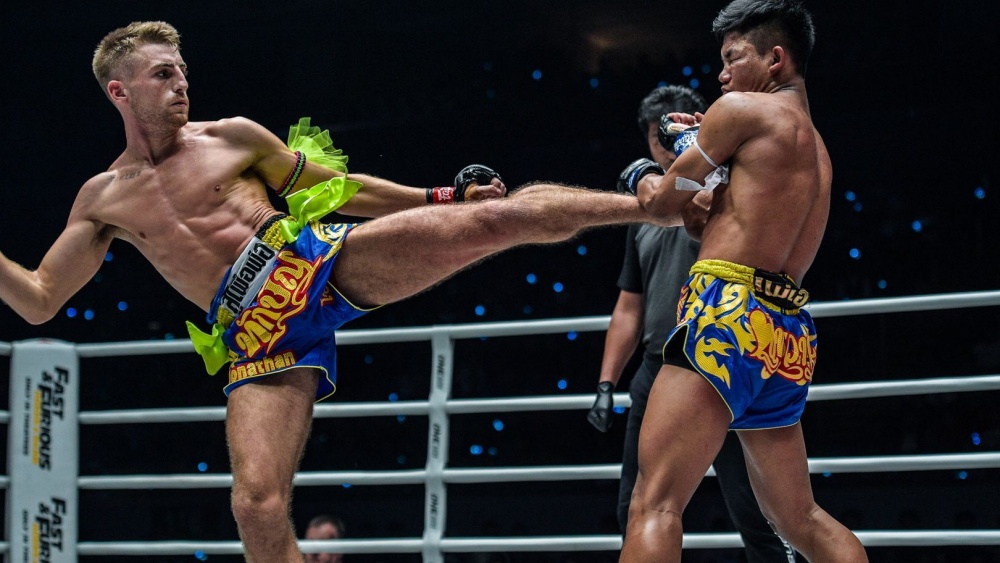Brazilian Jiu-Jitsu is a martial art focused on ground fighting. Like all martial arts, BJJ matches start from the standup. Some grapplers like to start standing up, while others prefer to go straight to the ground. While in a sports setting, butt scooting may be a great option as it prevents the opponent from scoring takedowns that may lead to a dominant position, it is vital for grapplers to develop their standup and know how to take the fight to the ground.
Having a good standup in grappling is an advantage. While most BJJ players neglect their standup and the importance of physical conditioning, having a durable standup is a reflection that a grappler is well-conditioned. To set up throws and takedowns, it is critical to first apply a strong set of grips against the opponent and then advance into a dominant controlling position. This article is an introduction to a powerful controlling position in submission wrestling called the Russian tie.
What Is The Russian Tie?
The Russian tie, also known in wrestling as the two-on-one, is a strong controlling position where you control an opponent’s arm using yours. It is an effective technique used and popularized by wrestlers from the Soviet Union in the international wrestling scene to dominate their opponents.
A typical setup of the Russian tie is where your body is positioned behind the opponent’s arm while your near hand applies an underhook, and your far hand controls their wrist. Another variation is using your near hand to grab your far hand’s wrist instead of the armpit (reverse figure four). This is an excellent position as it allows you to control and move the opponent while conserving your energy and strength for the takedown.
Application Of Russian Tie In BJJ
In wrestling, the Russian tie is used to control the opponent, particularly their upper body, forcing them to constantly defend and limiting their options for offense. Controlling the opponent’s upper body breaks their posture, thus making it easier to take them down. Carrying over the Russian tie to BJJ can significantly affect your standup game regardless of what style you play.
A key difference between wrestling and BJJ is that you can submit opponents in the latter. While the Russian tie can be used to effectively set up throws and takedowns, other options like taking the opponent’s back or applying submissions like the armbar are also viable from this position. Below are ways to apply the Russian tie in BJJ.
The Russian tie can usually be set up if the opponent applies a collar tie. When the opponent applies a collar tie, don’t let their elbow dig deep into your chest. To do this, push their elbow up to create space. Assuming that the opponent uses their right hand, turn your left wrist palm down and hit their right elbow with your left wrist as you shrug your left shoulder. This minimizes the space between your ear and shoulder.
Turn your hips and torso to the right and use your right hand to grip the opponent’s right wrist as you turn your body away. Connect your right elbow to your hip and use your left hand to grab an underhook deep under the opponent’s armpit as close as possible. Ensure your left shoulder is above the opponent’s right shoulder, and start leaning your weight into them. Place your head on top of the opponent’s right shoulder and drive it towards their right ear. Start walking into and behind the opponent and make them carry your weight.
Basic Attacks From The Russian Tie
1) Sumi Gaeshi From Russian Tie
As you apply the Russian tie, change the grip from the opponent’s armpit and pin their hand to their body. Start grabbing your wrist (reverse figure four) and push your body forward. As the opponent resists the pressure by pressing towards your direction, sit and apply a hook inside their thigh to land the sumi gaeshi. As you land on the mat, follow their body through so you can end up on top.
2) Arm Drag Down
From the reverse figure four, pressure forward to elicit a reaction. If the opponent resists by moving in the opposite direction to avoid the sumi gaeshi, maintain your reverse figure four Russian tie and drag them down. This will take the opponent off their feet.
3) Sweep To Ude Garami (Bent Arm Lock)
There are two ways to perform the sweep. The first is from the Russian tie. Change your grip to the reverse figure four, step inside between the opponent’s legs, and go chest to chest. From there, you can rotate the opponent upward.
The second option is to clear their arm outside while maintaining the grip with your legs outside. Slide your body underneath to sweep them forward. This sweep puts a lot of torque on the opponent’s shoulder. As you land, this sweep should land you in side control while trapping the opponent’s arm underneath.
4) Blast Double Leg
If the opponent grabs a collar tie, clear the arm and go for the Russian tie. Change level and move your hand from holding underneath their armpit to their waist. Your other hand should control the wrist as you move to grab their far leg. Drive forward to finish the double leg takedown.
5) Drop Ouchi Gari
If you can’t grab the opponent’s far leg for the blast double, circle forward and drop to your knee. This will trap the opponent’s near leg between yours as you drive with your back leg forward to force them down.
Conclusion
The Russian tie offers excellent control that leaves the opponent with little to no space to counter. Remember that being efficient with takedowns can be a game-changer. If you find shooting single and double legs difficult, we encourage you to consider using upper body controls like the Russian tie to set up your takedowns. Try this out, and let us know how it goes.
You may also like:
